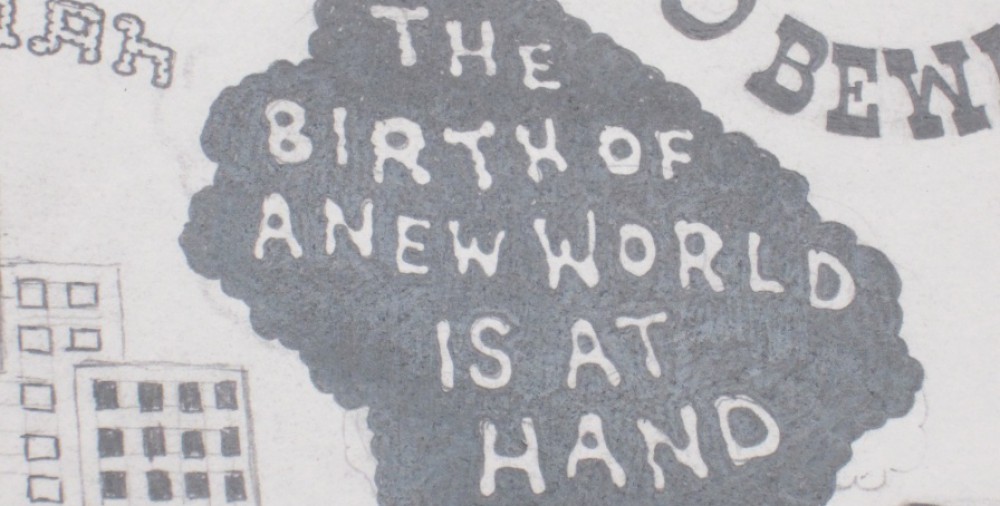First and foremost I find the novel We by Yevgeny Zamyatin very refreshing as it is written in first person unlike the novel Brave New World. The decision to write in first person really helps the reader, like me, to feel and understand exactly what the protagonist was thinking and feeling during a particular time. It is refreshing to read a story that feels like we have the access to read the protagonist’s diary… Now, onto my analysis…
————————————————————————————————-
The One State is an example of what I call an organized society, period.
Before any assumptions are made, I am a supporter and believer of everyone pertaining their own freedom, but I feel that this particular world is very structured and seems like everyone is equal. Not free, but yet, equal.
When I read the first couple of pages of the book, the first thing I thought was “Hmm, if the One State is structured mathematically, then it means that there isn’t a mistake with its concept.” What I mean by this statement is, in most of our math courses we are given an equation to solve, once we think we found the right answer, we have to “check” to make sure it is indeed correct, free from any flaws. There is always an equation for another equation. This applies to the One State since they believe that if they live in a mathematical, structured, organized world, then everything will have a meaning (same as checking your answers.)
I found this extremely intriguing, perhaps because I enjoy math, because the thought never crossed my mind to associate mathematics to become the solution to a “perfect” world. But it makes perfect sense. The residents of the One State live by the hours, everything is scheduled in their lives. Personal hours, work hours, all is based on one particular hour. There isn’t much difference between the residents except that everyone has a particular letter and number that will identify them.
I initially thought they believed in the whole mathematical-structured life so that things are equal with everyone in society but I soon learned that the concept of using mathematics in the One State is to prevent individuality and freedom from entering the society. I couldn’t understand the concept at all and how it would prevent such actions, but the further I read, the more I understood. I-330 stated, “‘To be original is to be in some way distinct from others. Hence to be original is to violate equality.'”(Zamyatin 28). As I stated before, everyone who resides in the One State lives in a structured world in which everything is based on a time schedule. Which means, when someone works, so will the others, at..the…same…time… Which indicates that if someone were not to work at the time accordingly, they are considered to be violating the rules since they are the only ones who decided to do something different.
It’s interesting to learn that if someone doesn’t do what they are supposed to do at a particular hour, then they are violating the rules and are considered different from the others. I guess this means that D-503 and I330 will be considered individuals in the next few entries. We shall wait and see…



